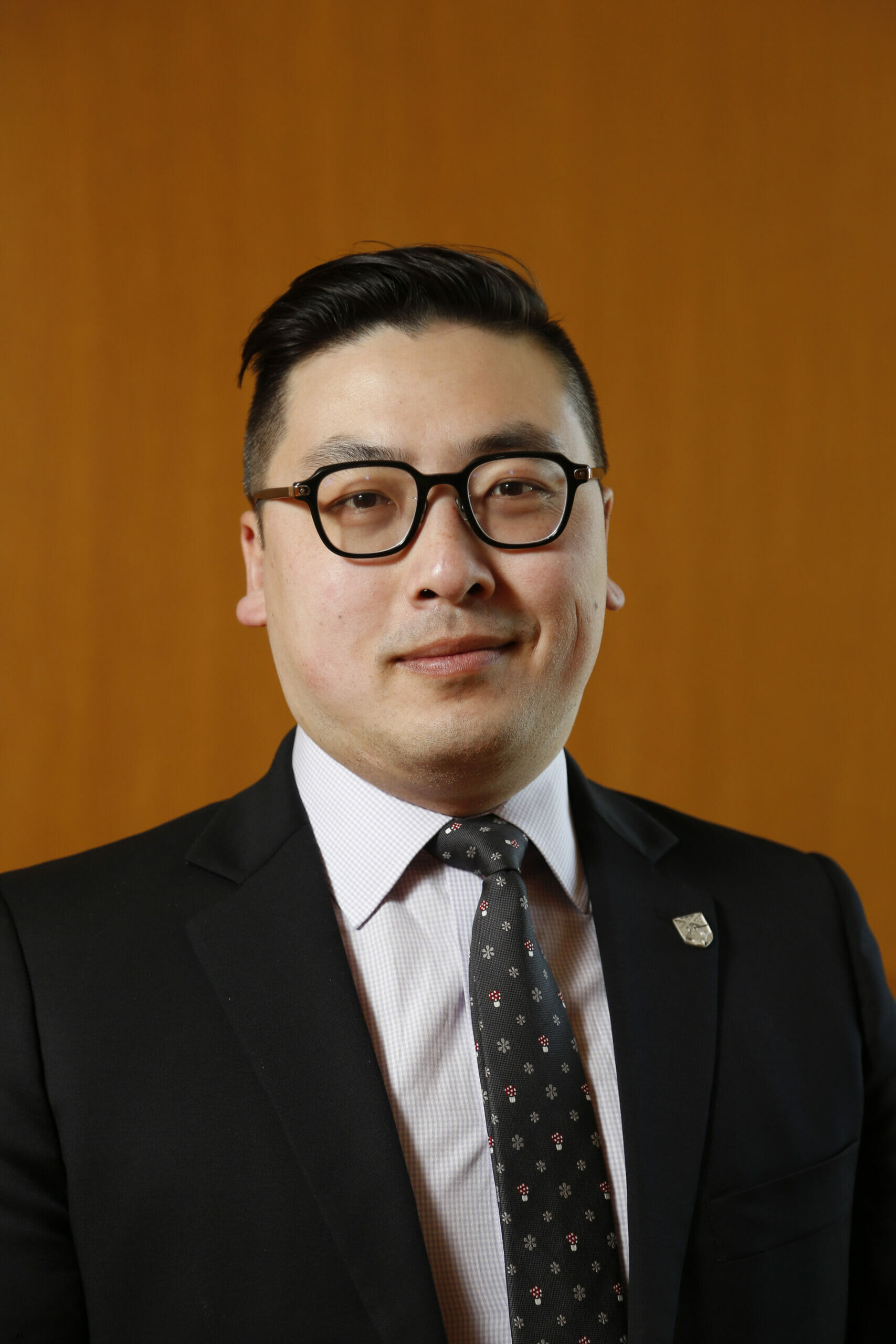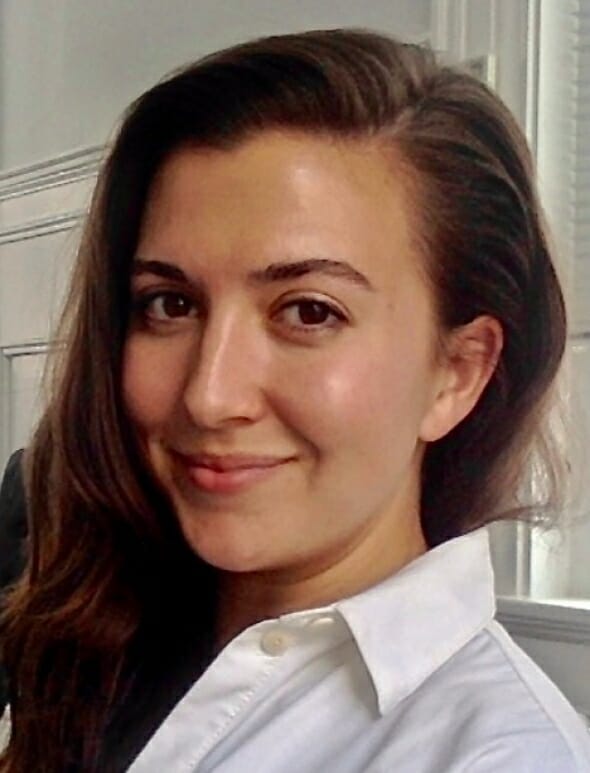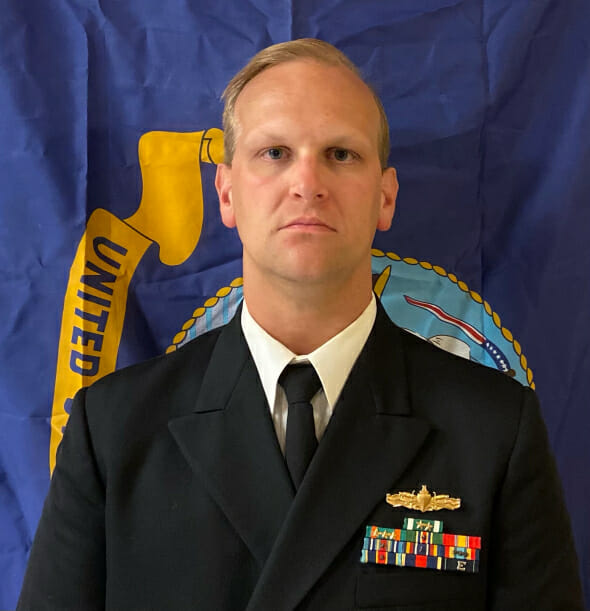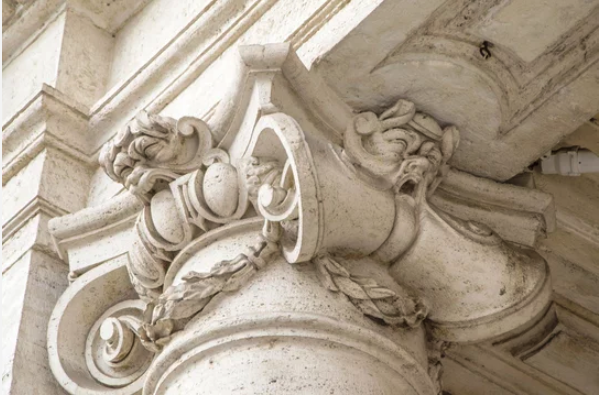Announcing Class of 2021-22 Doctoral and Military Fellows
Aug 30, 2021
Postdoctoral Fellows
Class of 2021 – 2022
 Alexandra Sukalo is a postdoctoral fellow at the Clements Center for National Security at the University of Texas at Austin. She is a historian of Russia and Eastern Europe specializing in the Soviet Union. She received her Ph.D. in History at Stanford University in 2021. Her dissertation, “Surveillance’s Double-Edged Sword: Intelligence and Identities in the Soviet Union, 1918-1953,” compares how the Soviet Union’s domestic intelligence service, or political police, functioned across the Soviet Republics. It traces the establishment and evolution of the Soviet political police in the non-Russian republics and explains how the political elite in Moscow endeavored to employ the political police to transform multiple insubordinate populations into loyal Soviet citizens. Prior to matriculating at Stanford, Alexandra worked for the Department of Defense. She holds a B.A. in Political Science from Barnard College of Columbia University, an M.A. in European and Russian Studies from Yale University, and an M.A. in History from Stanford University.
Alexandra Sukalo is a postdoctoral fellow at the Clements Center for National Security at the University of Texas at Austin. She is a historian of Russia and Eastern Europe specializing in the Soviet Union. She received her Ph.D. in History at Stanford University in 2021. Her dissertation, “Surveillance’s Double-Edged Sword: Intelligence and Identities in the Soviet Union, 1918-1953,” compares how the Soviet Union’s domestic intelligence service, or political police, functioned across the Soviet Republics. It traces the establishment and evolution of the Soviet political police in the non-Russian republics and explains how the political elite in Moscow endeavored to employ the political police to transform multiple insubordinate populations into loyal Soviet citizens. Prior to matriculating at Stanford, Alexandra worked for the Department of Defense. She holds a B.A. in Political Science from Barnard College of Columbia University, an M.A. in European and Russian Studies from Yale University, and an M.A. in History from Stanford University.
Broadly speaking, Alexandra’s research focuses on the Soviet Union’s attempts to maintain domestic control and project power at home and abroad through the use of institutions as well as the impact ordinary citizens had on how these institutions functioned. She is currently working on a book manuscript based on her dissertation research as well as a second project, which explores the evolution of the Soviet Military-Industrial Complex from Stalin to Gorbachev and analyzes the impact this inherited system continues to have on the Russian Federation.
 William Chou is a 2021-2022 America in the World Consortium postdoctoral fellow at the Clements Center for National Security at the University of Texas at Austin. William earned his Ph.D. in History at The Ohio State University in 2021, where his research focused on diplomacy, trade, and technology. His book manuscript project examines the postwar U.S.-Japanese alliance from the perspective of Japanese consumer exports and how they reconfigured bilateral security, economic, and cultural relations. He is also currently working on a chapter for an edited volume on American capitalism in the 20th century, addressing transpacific trade and knowledge transfer during the 1970s and 1980s.
William Chou is a 2021-2022 America in the World Consortium postdoctoral fellow at the Clements Center for National Security at the University of Texas at Austin. William earned his Ph.D. in History at The Ohio State University in 2021, where his research focused on diplomacy, trade, and technology. His book manuscript project examines the postwar U.S.-Japanese alliance from the perspective of Japanese consumer exports and how they reconfigured bilateral security, economic, and cultural relations. He is also currently working on a chapter for an edited volume on American capitalism in the 20th century, addressing transpacific trade and knowledge transfer during the 1970s and 1980s.
Prior to arriving at the Clements Center, William was a foreign research scholar at the University of Tokyo and received fellowships from the Fulbright-Hays Foundation, the Nippon Foundation, and the Smithsonian Institution. In addition, he has worked at the Army’s Center for Military History and the Institute for Defense Analyses, a federally funded research & development center (FFRDC), where he researched on projects concerning the Iraq War, interagency intelligence coordination in Iraq, and capabilities-based defense planning. He received his BA in History from Yale University, where he worked as the research assistant to Paul M. Kennedy’s book, Parliament of Man.
 Emily Whalen is a postdoctoral fellow at the Clements Center for National Security at the University of Texas at Austin. Emily’s research examines U.S. foreign policy in the Middle East, theories of civil war and the state, and global history during the late Cold War. Her current project draws on sources from the United States and Lebanon to construct an international history of the Lebanese Civil War. She is also completing a second project, a microhistory of geopolitical strategy and Track-II diplomacy in Europe during the 1980s and 1990s.
Emily Whalen is a postdoctoral fellow at the Clements Center for National Security at the University of Texas at Austin. Emily’s research examines U.S. foreign policy in the Middle East, theories of civil war and the state, and global history during the late Cold War. Her current project draws on sources from the United States and Lebanon to construct an international history of the Lebanese Civil War. She is also completing a second project, a microhistory of geopolitical strategy and Track-II diplomacy in Europe during the 1980s and 1990s.
Prior to joining the Clements Center, Emily was an Ernest May Fellow in History & Policy with the Belfer Center for Science & International Affairs at the Harvard Kennedy School of Government and a Smith Richardson Predoctoral Fellow at Yale University’s International Security Studies Program. She was an affiliated scholar at the American University of Beirut’s Center for Arab and Middle Eastern Studies, and a recipient of grants from the PEO Sisterhood, the American Association of University Women, the John Anson Kittredge Foundation, and the Smith Richardson Foundation. In addition to her scholarly work, Emily has served as a historical consultant for the EastWest Institute, and a coder for the Armed Conflict Location and Event Database, covering political violence in Pakistan. Her writing appears in several online publications, including Foreign Policy, and H-Diplo. She earned her doctorate in 2020 from the University of Texas at Austin.
Predoctoral Fellows
Class of 2021 – 2022
 Joseph A. Ledford is a 2021-2022 America in the World Consortium predoctoral fellow at the Clements Center for National Security at the University of Texas at Austin. Ledford is a Ph.D. candidate in history at the University of California, Berkeley, and a Graduate Student Affiliate of the Institute of International Studies at Berkeley. Joseph specializes in the history of U.S. foreign relations and the American presidency. He is also concerned with the strategic thinking that informs national security and the use of military force, maintaining a broad interest in matters of intelligence, strategy, and war.
Joseph A. Ledford is a 2021-2022 America in the World Consortium predoctoral fellow at the Clements Center for National Security at the University of Texas at Austin. Ledford is a Ph.D. candidate in history at the University of California, Berkeley, and a Graduate Student Affiliate of the Institute of International Studies at Berkeley. Joseph specializes in the history of U.S. foreign relations and the American presidency. He is also concerned with the strategic thinking that informs national security and the use of military force, maintaining a broad interest in matters of intelligence, strategy, and war.
Joseph is presently completing a study of the presidency of Ronald Reagan and the Iran-Contra affair. In his dissertation, “Restoring the Presidency: A Reagan Revolution and the Iran-Contra Affair,” Joseph examines the intersection of domestic politics and foreign policy that produced the Iran-Contra affair and shows how the resulting crisis of the presidency transformed American governance. Of all the pivotal events during the Reagan era, his dissertation reveals that Iran-Contra was the most consequential for both U.S. foreign policy and the post-Cold War American presidency.
Joseph’s writing has appeared in the Journal of Military History, International Journal of Intelligence and CounterIntelligence, and on H-War. His research has received support from institutions such as the Everett M. Dirksen Congressional Center and the Scowcroft Institute of International Affairs at the Bush School of Government and Public Service at Texas A&M University.
 Elena Wicker is a Ph.D. candidate in International Relations at Georgetown University and a 2021-2022 predoctoral fellow at the Clements Center for National Security at the University of Texas at Austin. Her dissertation explores the strategic creation and use of jargon in the U.S. military and the past, present, and future of concepts, doctrine, and strategy. Her interdisciplinary and multi-method research combines archival research, interviews, and quantitative methods including machine learning and natural language processing.
Elena Wicker is a Ph.D. candidate in International Relations at Georgetown University and a 2021-2022 predoctoral fellow at the Clements Center for National Security at the University of Texas at Austin. Her dissertation explores the strategic creation and use of jargon in the U.S. military and the past, present, and future of concepts, doctrine, and strategy. Her interdisciplinary and multi-method research combines archival research, interviews, and quantitative methods including machine learning and natural language processing.
Concurrent with her doctoral research, Elena is an Adjunct Researcher with the RAND Corporation where she contributes to projects relating to intelligence, security cooperation, homeland security, and defense policy. Prior to her graduate studies, she served as an Intelligence Security Cooperation Officer with the Defense Intelligence Agency. She has completed internships in arms control treaty verification at the Department of State and worked for refugee aid projects in Jordan and the West Bank while studying advanced Arabic as a Boren Scholar. She holds an M.A. in Government from Georgetown University and a B.A. (magna cum laude) in Near Eastern Studies and Physics from Cornell University.
 Zoltan Feher is a PhD Candidate (ABD) in International Relations at The Fletcher School of Law and Diplomacy, Tufts University. In 2020-2021, he is a World Politics and Statecraft Fellow with the Smith Richardson Foundation. Since 2017, he has been a Research Fellow at The Fletcher School’s Center for Strategic Studies. From 2002 to 2015, he worked as a professional diplomat for his home country Hungary, serving as foreign policy analyst at the Hungarian embassy in Washington DC, and later as Hungary’s Deputy Ambassador and Acting Ambassador in Turkey. He holds a Master of Arts in Political Science and a Master of Arts in American History from Eötvös Loránd University (Budapest), a Law degree (J.D.) from Pázmány Catholic University (Budapest), and a Master in Public Administration from Harvard University.
Zoltan Feher is a PhD Candidate (ABD) in International Relations at The Fletcher School of Law and Diplomacy, Tufts University. In 2020-2021, he is a World Politics and Statecraft Fellow with the Smith Richardson Foundation. Since 2017, he has been a Research Fellow at The Fletcher School’s Center for Strategic Studies. From 2002 to 2015, he worked as a professional diplomat for his home country Hungary, serving as foreign policy analyst at the Hungarian embassy in Washington DC, and later as Hungary’s Deputy Ambassador and Acting Ambassador in Turkey. He holds a Master of Arts in Political Science and a Master of Arts in American History from Eötvös Loránd University (Budapest), a Law degree (J.D.) from Pázmány Catholic University (Budapest), and a Master in Public Administration from Harvard University.
Feher has taught International Relations at the Harvard Kennedy School, Harvard Summer School, Massachusetts Institute of Technology, The Fletcher School, Ivy League Summer Institute (at the Harvard Law School), and leading Hungarian universities. In 2016, he served as a teaching assistant to Joseph Nye at the Harvard Kennedy School. In 2019, he taught his self-designed course What is Grand Strategy? at Tufts University’s Political Science Department. His dissertation, The Sources of American Conduct: U.S. Strategy, China’s Rise, and International Order, examines U.S. strategy vis-à-vis China between 1970 and 2020, focusing on how and why the United States ended up facilitating China’s rise.
Military Fellows
Class of 2021 – 2022
 Lieutenant Colonel Edward Arntson, U.S. Army, is affiliated with the Clements Center through the U.S. Army War College fellowship program. He recently relinquished battalion command of 3-187 Infantry in the 101st Airborne Division, a command which included an 11-month deployment to the Southwest Border of the United States in support of the U.S. Border Patrol. Before battalion command, Ed served on the Joint Staff, as Aide-de-Camp for the Commander of III Corps and Fort Hood, and as the operations officer for both the 1st Brigade, 1st Cavalry Division and 4th Battalion, 3rd U.S. Infantry (The Old Guard). As a junior officer, Ed served in airborne and conventional infantry battalions, deploying several times to Afghanistan and Iraq. Ed will use his fellowship year to study the classics of strategic thought and consider the perennial challenges of withdrawing from a theater of war.
Lieutenant Colonel Edward Arntson, U.S. Army, is affiliated with the Clements Center through the U.S. Army War College fellowship program. He recently relinquished battalion command of 3-187 Infantry in the 101st Airborne Division, a command which included an 11-month deployment to the Southwest Border of the United States in support of the U.S. Border Patrol. Before battalion command, Ed served on the Joint Staff, as Aide-de-Camp for the Commander of III Corps and Fort Hood, and as the operations officer for both the 1st Brigade, 1st Cavalry Division and 4th Battalion, 3rd U.S. Infantry (The Old Guard). As a junior officer, Ed served in airborne and conventional infantry battalions, deploying several times to Afghanistan and Iraq. Ed will use his fellowship year to study the classics of strategic thought and consider the perennial challenges of withdrawing from a theater of war.
 Commander Michael Knickerbocker, U.S. Navy, a Surface Warfare Officer, is assigned to the Clements Center as part of the Navy’s Federal Executive Fellowship. Most recently, he served as Battle Watch Captain in U.S. Fleet Forces Command. As a lieutenant commander, he was assigned to Carrier Striker Group Twelve and the USS Gerald R. Ford, where he supported a wide variety of joint and theater level exercises in three distinct fleet areas of operations. His junior officer assignments included: service aboard the USS Gary, the USS Decatur, and the USS Ramage. He served ashore as the Associate Professor of Naval Science at the University of Villanova Naval ROTC. During his year with the Clements Center, Mike will pursue graduate coursework in history, political science, and economics.
Commander Michael Knickerbocker, U.S. Navy, a Surface Warfare Officer, is assigned to the Clements Center as part of the Navy’s Federal Executive Fellowship. Most recently, he served as Battle Watch Captain in U.S. Fleet Forces Command. As a lieutenant commander, he was assigned to Carrier Striker Group Twelve and the USS Gerald R. Ford, where he supported a wide variety of joint and theater level exercises in three distinct fleet areas of operations. His junior officer assignments included: service aboard the USS Gary, the USS Decatur, and the USS Ramage. He served ashore as the Associate Professor of Naval Science at the University of Villanova Naval ROTC. During his year with the Clements Center, Mike will pursue graduate coursework in history, political science, and economics.
Joseph’s writing has appeared in the Journal of Military History, International Journal of Intelligence and CounterIntelligence, and on H-War. His research has received support from institutions such as the Everett M. Dirksen Congressional Center and the Scowcroft Institute of International Affairs at the Bush School of Government and Public Service at Texas A&M University.




